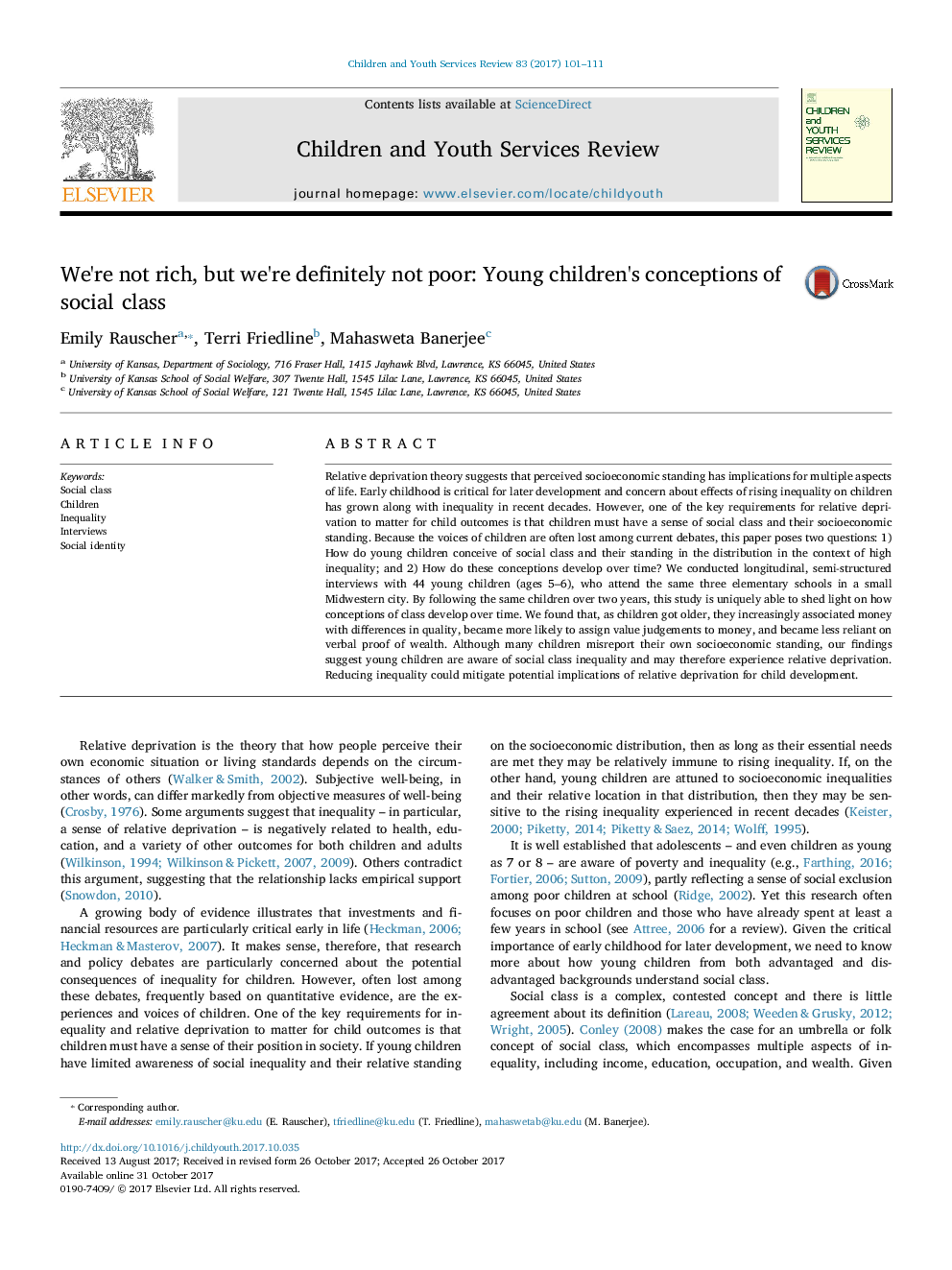ترجمه فارسی عنوان مقاله
ما غنی نیستیم، اما قطعا فقیر نیستیم: درک جوانان از طبقه اجتماعی
عنوان انگلیسی
We're not rich, but we're definitely not poor: Young children's conceptions of social class
| کد مقاله | سال انتشار | تعداد صفحات مقاله انگلیسی |
|---|---|---|
| 108916 | 2017 | 11 صفحه PDF |
منبع

Publisher : Elsevier - Science Direct (الزویر - ساینس دایرکت)
Journal : Children and Youth Services Review, Volume 83, December 2017, Pages 101-111
ترجمه کلمات کلیدی
طبقه اجتماعی، فرزندان، نابرابری، مصاحبه ها، هویت اجتماعی،
کلمات کلیدی انگلیسی
Social class; Children; Inequality; Interviews; Social identity;

